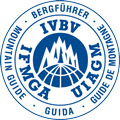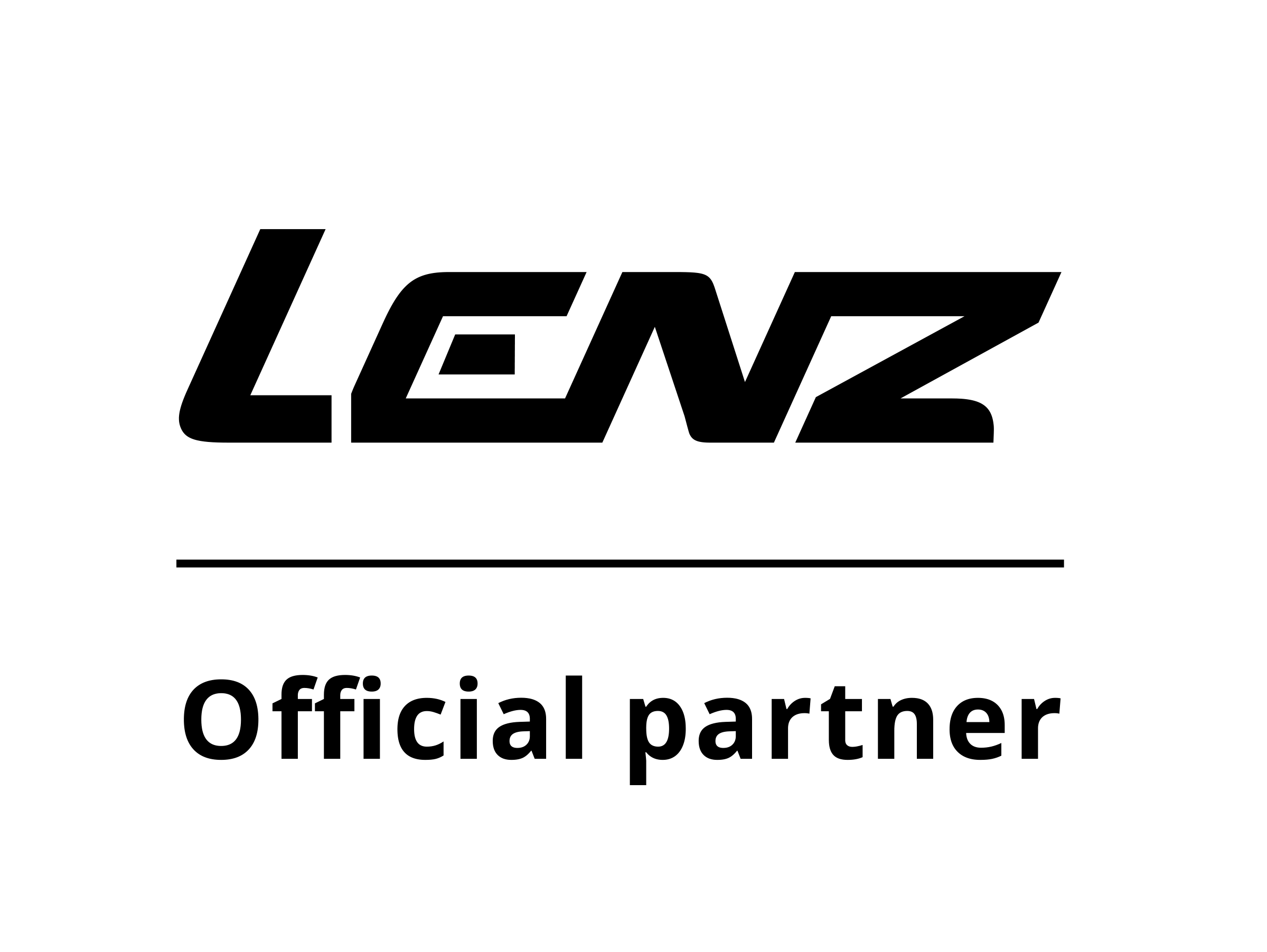Training and Assesment of Mountain Guides
General
3.1 The IFMGA Mountain Guide receives professional training in all guiding, technical and climbing skills, from guiding groups while hiking, classic mountaineering in all sectors, to treks on high altitude peaks or accompanying expeditions; and while under training, opportunities are provided for the Guide to gain further experience.
3.2 He/she is tested and examined in all subjects. The complete skills of an IFMGA Mountain Guide are listed in the current version of the Reference Handbook “Skills and Certifications IFMGA Mountain Guides”.
3.3 Any experienced mountaineer who complies with the requirements of the IFMGA standard can start the training to become a qualified IFMGA Mountain Guide. Training, assessment and certification are organised by the responsible institution in a Member Association, or may also take place through the IFMGA in especially organised multinational training. Training courses are delivered in the English language. The qualified Guide will obtain IFMGA recognition when they become a member of an IFMGA Member
Association.
3.4 Under certain conditions IFMGA Member Associations may train applicants/candidates from other countries. If the home Association of the applicant/candidate is an IFMGA Member Association or Candidate Association, the Member Association undertaking the training is encouraged to inform the home Association that this training is taking place. In any case, during the first 5 years of IFMGA membership, the Member Association requires an annual authorisation from the IFMGA Technical Committee to train applicants/candidates from other countries (IFMGA countries and other). No Ski Countries must obtain authority from the IFMGA Technical Committee to train guides from other IFMGA Member Associations, especially ski countries or potential ski countries (art. 5.17). When possible the IFMGA Technical Committee reserves the right to carry out observations.
The Training Scheme
3.5 Individual Member Associations have some discretion as to how the Training is delivered, but the following is the minimum required by the IFMGA.
3.6 Training is a mixture of Group Training and Practical Learning with a mentor / supervisor. Group Training precedes the Practical Learning with a mentor / supervisor (according to art. 3.10. paragraph 1-3). Group Training comprises courses delivered to a number/group of people by a collective of instructors, covering all aspects of the syllabus. Practical Learning always has to be under the direct and personal supervision of at least two different supervisors and takes place in alpine type terrain (see art. 3.18).
3.7 Once the entry exam has been passed, the overall training, including all exams and the 14 days of Practical Learning with a mentor / supervisor, must be 94 days minimum and it has to be completed within 3 years minimum and 6 years maximum.
3.7.1 It is an IFMGA requirement that the prescribed training days are efficiently used and correspond to the prescribed quality standard. The reference manual complements the Platform with the corresponding training content. The amount of assessment and exam days may be maximum of 20% of the total training (without integrating the general practical training / traineeship according to art. 3.20.1). An appropriate time period for practice and learning has to be kept between training and exams.
3.8 The training includes theory and practice. The practical elements must be at least 84 days (incl. practical learning with supervisor). The minimal training time of 94 days is split up as follows (the listed days do not have to be made in order, but must be included in the training program)
- 32 days of general mixed terrain (snow, ice, rock incl. 7 days practical learning with supervisor)
- 32 days of ski / winter (e.g. ski mountaineering, off-piste, freeride, mechanised uplift skiing, ski touring, etc. incl. 7 days practical learning with supervisor)
- 20 days of rock (alpinism, rescue, technical rock climbing)
- 7 days theory with theoretical units from different sectors (a maximum of 10 days will however be credited)
- 3 days country-specific training
| Description | Disciplines |
No days |
Notes |
| General mixed | snow/ice/rock | 25 | |
| Supervised practical learning | snow/ice/rock | 7 | should be delivered by 2 different IFMGA trainer teachers (mentor / supervisor). |
| Ski/Winter | Ski mountaineering, off piste, freeride, mechanised skiing, ski touring | 25 | |
| Supervised practical learning | Ski mountaineering, off piste, freeride, mechanised skiing, ski touring | 7 | should be delivered by 2 different IFMGA trainer teachers (mentor / supervisor). |
| Rock | Alpinism, Rescue, technical climbing | 20 | |
| Total Practical training |
84 a minimum of 60 days of the 84 should take place in appropriate classic mixed terrain |
||
| Theoretical | All related subjects | 7-10 | |
| Country specific requirements | disciplines associated with unique terrain environment requirements | 3 | |
| Total theoretical and country specific training | 10 | ||
| All Training Total | 94 | ||
The IFMGA appreciates that Member Associations may add additional days to the minimum requested training time of 94 days. At least 60 of these 84 days must take place in classic mixed terrain (snow, ice, rock) including glaciers, for example the Alps, Andes, Himalayas, Rocky Mountains, the Central Asian mountain range or similar comparable mountain groups such as the Alps of New Zealand, Alatau etc.
Summary of Skills Taught
3.9 A Mountain Guide is trained and assessed in both technical and soft skills, each contributing equally to safety, quality and to a Guide’s general professionalism.
Examples of skills taught:
Snow and Avalanche Evaluation
Environment (fauna, flora, geology, ecology, culture)
First Aid (incl. high altitude medicine)
General Mountaineering, Trekking and Expedition (theoretical and practical contents)
Guiding in remote areas
Meteorology
Mountain Rescue (self rescue, crevasse rescue, avalanche rescue etc.)
Navigation
Personal technical skills (general mountaineering, skiing, rock, ice etc.)
Practice Guiding Skills
Rope handling
Route Choice / Route planning
Examples of soft skills taught:
Coaching
Communication
Feedback
Information
Leading and Teaching
Motivation
Organisation
Relations and Social Skills
Risk Management
The required competences in detail are listed in the Reference Handbook.
Sequence of the training
3.10 The training is done in the following sequence:
- Entry Requirements
- Entry Exam
- Basic training (Aspirant Guide Course) incl. theory
- Practical learning with supervisor
- Work experience / traineeship (the IFMGA Technical Committee encourages Member Associations to do more than the minimum 14 days as stipulated)
- Mountain Guide Course (incl. theoretical exam)
- Final assessment
Entry Requirements
3.11 An Applicant must:
- have reached the age of majority, which varies between countries and is normally 18 yrs.
- have extensive experience in the disciplines of general mountaineering, skiing, rock and ice. Skiing must be replaced and compensated in “No Ski” countries by intensified training content (snow and avalanche training, avalanche assessment, activities in snow-covered terrain – possibly with snowshoes, group guiding etc.) (see 5.15)
- provide a list of at least 55 routes which includes varied mountain routes, ski tours, technical climbs, and other experience carried out over a period of at least three years. During these climbs, the applicant must either have been the rope leader with full responsibility or have carried out alternative leads with shared responsibility
- be in very good physical shape
3.12 The list of 55 varied mountain routes must contain:
Summer Mountaineering
- general mountaineering, snow and ice: a minimum of 15 routes of which five must be of difficulty D+ and with a vertical height gain of at least 800 metres
- rock: a minimum of 15 routes with a vertical height gain of at least 300 metres (or at least 15 pitches), of minimum difficulty 5c (VI / UIAA) . The routes have to be belayed by oneself and should therefore not be equipped with bolts.
- the ascent and descent for these routes must have taken place on mountainous terrain and/or on glaciers
- in descent, only a small number of the 30 routes can be carried out using fixed and established rappel stations, most descents should be by a route other than that of the ascent and must be in terrain, alpine in character
- routes that appear twice in the route report will be counted only once
Winter Mountaineering
- ski touring: a minimum of 25 tours, each tour having at least 1000 metres ascent. At least 10 of these days must be on glacier terrain and have at least 1400 metres elevation gain in ascent.
- For “No Ski countries”; a minimum of 25 days winter mountaineering (possibly also with snowshoes) each day having at least 800 metres ascent/descent. At least 10 of these days must be on glacier terrain and have at least 1200 metres elevation gain in ascent.
Technical Climbs
- multi-pitch rock routes, grade 6a (VI+) minimum
- several pitches on steep ice, grade 4 (WI) minimum
Other Experience
- An Applicant must provide any other relevant experience, for example via ferrata of difficulty degree TD/ED or K5/K6, expeditions or climbs abroad/overseas, and training undertaken in Alpine type terrain
3.13 Having met the Entry Requirements, an Applicant takes the Entry Exam, which includes:
- a rock climbing test of grade 5a minimum in mountaineering boots
- a rock climbing test of grade 6b minimum in rock shoes
- an ice climbing test on a 50° to 60° slope with one ice axe and backpack
- test in ascending, descending and traversing on ice with crampons and one ice axe (i.e. 10 point and not front point technique, with a non-technical ice axe).
- a steep ice climbing test with two ice devices (WI IV)
- a skiing test in common basic techniques on ski slopes (No Ski, see 3.11, 5.15)
- a skiing test with rucksack and classic ski touring equipment, mastering all types of snow on all terrains (No Ski, see 3.11, 5.15)
- an ascending test with touring skis in varied terrain
- a general ability test in mountain terrain
3.14 Having passed the Entry Exam, an Applicant becomes a Candidate.
Aspirant Guide Course / First part of the Formation
3.15 A Candidate who, at the discretion of the responsible training institution of the Member Association, has sufficient experience and training, goes on to the Training Scheme for Aspirant Guides.
3.16 This includes at least 66 days of Group Training covering the following subjects (minimum number of days in brackets):
- snow and avalanches (6)
- theoretical basics (3)
- trekking and expeditions (high altitude medicine, group guiding, remote areas) (3)
- self-rescue and organised mountain rescue (4)
- First Aid (2)
- practical winter training in skiing, ski mountaineering and mechanized skiing (16)
- the practical winter training must be replaced and compensated in No Ski Member Associations by intensified training contents in the sector of snow and avalanche training, group guiding etc. (see 3.11 / 5.15).
- practical summer training in high mountain regions in rock, ice, mixed and on glaciers (16)
- climbing in alpine rock terrain, sport climbing, indoor climbing and guiding on via ferrata (7)
- assessment of practical and theoretical skills and knowledge during Aspirant Guide Course / first training period in rock, ice, ski and mixed terrain (6)
- training days at the Member Associations’ discretion (3)
| Group training content | Number of days |
| snow and avalanche | 6 |
| theoretical basics | 3 |
| trekking and expeditions (high altitude medicine, group guiding, remote areas) | 3 |
| self-rescue and organised mountain rescue | 4 |
| First Aid | 2 |
|
practical winter training in skiing, ski mountaineering and mechanized skiing
• the practical winter training must be replaced and compensated in No Ski Member Associations by intensified training content in the sector of snow and avalanche training, group guiding etc. (see 3.11 / 5.15). |
16 |
| practical summer training in high mountain regions in rock, ice, mixed and on glaciers | 16 |
| climbing in alpine rock terrain, sport climbing, indoor climbing and guiding on via ferrata | 7 |
|
assessment of practical and theoretical skills and knowledge during Aspirant Guide Course / first training period in rock, ice, ski and mixed terrain |
6 |
| training days at the Member Associations’ discretion | 3 |
| Total number of training | 66 |
Practical learning with supervisor
3.17 Having passed all courses and assessments of the Aspirant Guide Course, the Candidate becomes an Aspirant Guide. The status of Aspirant Guide is a transitional status. The possible activities of an Aspirant Guide are subject to restrictions.
3.18 During Practical Learning with supervisor, an Aspirant must complete at least 14 days (7 in general mountaineering/summer and 7 in skiing/winter); and the following requirements must be observed:
- these 14 days training should be delivered by 2 different IFMGA trainer teachers (mentor / supervisor). The trainer teachers (mentor / supervisor) are required to be IFMGA mountain guides. The mentor should have gained significant and extensive experience and competence as a trainer, teacher and mountain guide.
- the Aspirant must be under continual direct supervision, by which is meant that the IFMGA Guide and the Aspirant are in close visual and verbal contact with each other
- when delivering the practical learning / traineeship, the IFMGA Guide can only be responsible for one Aspirant at any time.
- the Aspirant keeps a record of routes and experience in a logbook which has to be signed by the different IFMGA Guides
- this practical learning with a supervisor must be recognised and approved by the Member Association and the authority in charge of training
- in cases where practical learning with a supervisor is not possible (i.e. a Member Association with only a few full-time IFMGA mountain guides, national laws not containing this) the 2 x 7 days (summer + winter) provided for this, have to be integrated into the training programme as pure guiding days.
Mountain Guide Course /Third Part of the Formation
3.19 Having completed the 66 days of Group Training followed by the 14 days of Practical Learning with a supervisor (according to art. 3.18), the Aspirant can progress to the Mountain Guide Course, which consists of a minimum of 14 days. All aspects of summer and winter mountaineering, and of ski mountaineering have to be covered, and assessed by examination, both practically and theoretically.
3.20 On successful completion of the Mountain Guide Course, the Aspirant becomes a fully qualified Mountain Guide and receives the Diploma of the IFMGA Mountain Guide. The certification level is described in the current version of the Reference Handbook “Skills and Certifications IFMGA Mountain Guides”.
3.20.1 In countries where the training is organised with a “Specialised Guide System” (rock guide, alpine guide, ski guide etc.) the training content and days have to correspond to the activity field (specialisation and field of application) according to the IFMGA Platform. A future alpine or ski guide should accomplish the requested training time of 80 days, according to the Platform.
3.20.2 Member Associations or other training institutions (according to the Platform) have freedom to extend their training days (eg aspirant days) , in addition to the required minimum number of 94 training days (incl. 2 x 7 days practical learning with supervisor).
CPD (Continual Professional Development)
3.21 CPD is training recognised and approved by a Member Association as contributing to the continued professional development of a Mountain Guide.
3.22 Each Member Association (subject to any national or federal laws) can set its own requirements as to how often CPD should take place. However, the IFMGA recommendation is that a Mountain Guide carries out CPD at least every 2 years and that it is on the basis of at least 1 day per year.
3.23 Mountain guide instructors are obliged to participate regularly in training coordination meetings and CPD which are organised by their national Associations or other training institutions (art. 7.1).


